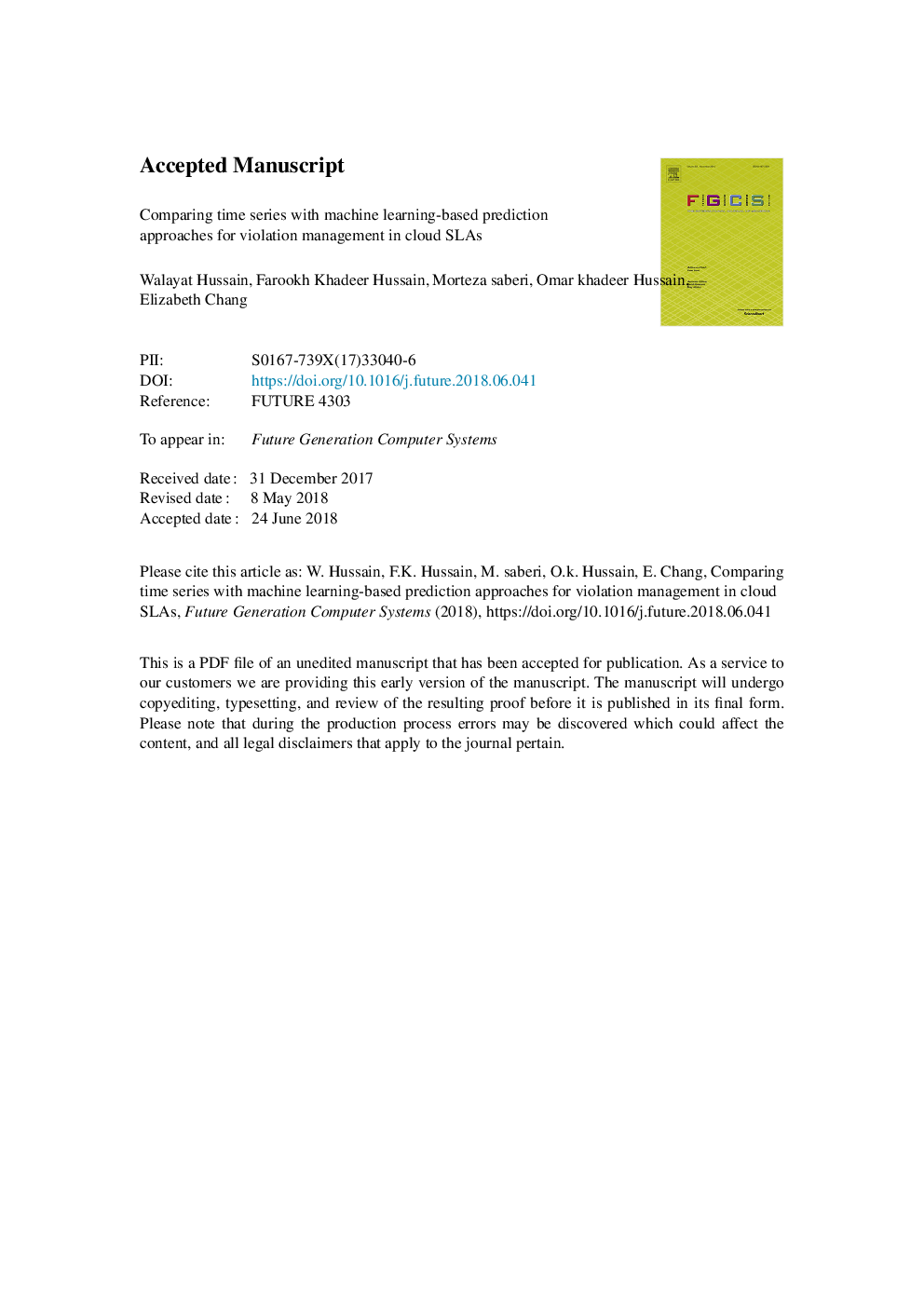| Article ID | Journal | Published Year | Pages | File Type |
|---|---|---|---|---|
| 6872828 | Future Generation Computer Systems | 2018 | 27 Pages |
Abstract
In cloud computing, service level agreements (SLAs) are legal agreements between a service provider and consumer that contain a list of obligations and commitments which need to be satisfied by both parties during the transaction. From a service provider's perspective, a violation of such a commitment leads to penalties in terms of money and reputation and thus has to be effectively managed. In the literature, this problem has been studied under the domain of cloud service management. One aspect required to manage cloud services after the formation of SLAs is to predict the future Quality of Service (QoS) of cloud parameters to ascertain if they lead to violations. Various approaches in the literature perform this task using different prediction approaches however none of them study the accuracy of each. However, it is important to do this as the results of each prediction approach vary according to the pattern of the input data and selecting an incorrect choice of a prediction algorithm could lead to service violation and penalties. In this paper, we test and report the accuracy of time series and machine learning-based prediction approaches. In each category, we test many different techniques and rank them according to their order of accuracy in predicting future QoS. Our analysis helps the cloud service provider to choose an appropriate prediction approach (whether time series or machine learning based) and further to utilize the best method depending on input data patterns to obtain an accurate prediction result and better manage their SLAs to avoid violation penalties.
Related Topics
Physical Sciences and Engineering
Computer Science
Computational Theory and Mathematics
Authors
Walayat Hussain, Farookh Khadeer Hussain, Morteza Saberi, Omar Khadeer Hussain, Elizabeth Chang,
